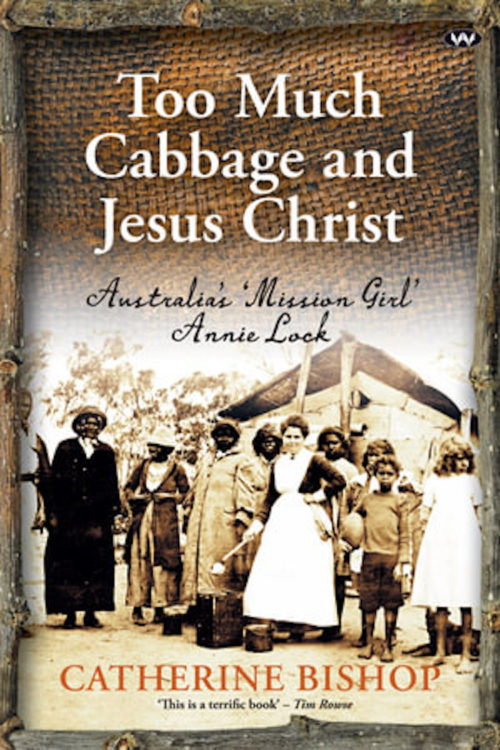An engaging biography of Annie Lock, a missionary in outback Australia.
Catherine Bishop, a researcher at Macquarie University, is an award-winning historian and writer. Much of her work has uncovered “forgotten” histories of women in colonial Australia, as does this book, the first biography she has written. Bishop has brought to light the faith-based career of Annie Lock, a fiercely independent missionary, and her work with Aboriginal peoples in early 20th-century Australia.
Annie’s mother was a staunch Methodist and she embraced that faith. Her parents were share-farmers in South Australia and their seventh child had very little education, working from an early age to contribute to the family income. Given her background, Annie Lock was in many ways an unlikely missionary. Bishop speculates that perhaps Annie was inspired by the heroic tales of missionaries in far-flung places such as India and China.
Young women were actively recruited by missionary societies in the UK, USA and Australia. Their supposed “mothering” and “civilising” instincts were seen as valuable skills to bring various ‘native’ peoples to Christianity. At the age of 20, Annie felt called to missionary work. After training in Adelaide, Annie was disappointed not to be sent to an exciting destination such as China but rather to NSW, where her 34-year career of ministering to Aboriginal peoples began.
The author covers far more than just the life story of Annie, informing readers of what, where, and how the compelling issues of the times impacted both the missionary and her “charges”. Her Christian faith sustained Annie through incredible hardships as the missionaries worked under the rubric of “God will provide”. This suited governments of the time as they were able to dodge their own responsibility to care for Aboriginal people, despite the restrictions placed upon them by various Protection Acts.
The fascinating narrative draws one into Annie’s unusual life and career. Often working alone in remote areas, Annie pursued what she believed was God’s plan: to bring Christian faith and ways of living to the Aboriginal peoples. This often involved moving people away from their country onto missions where they could be, in Annie’s terms, better looked after and taught. In many instances, Annie’s assistance with food, nursing the sick and especially her care of children was readily accepted. Of course, not everyone agreed, as is noted in the book’s title which is a comment from someone Annie wished to “help”.
The book also discusses the misguided intentions of missionaries such as Annie, and the governments which permitted children to be taken away from their families “for a better life”. Such ways of working to assist Aboriginal peoples had generations-deep consequences of severing connections to culture and country, which many Indigenous Australians are still struggling to come to terms with today.
Bishop presents a lively and nuanced account of cultural clashes and misunderstandings, leaving this reader feeling undecided about the well-intentioned, dedicated but ultimately controversial missionary work such as Annie Lock’s.
Reviewed by Jan Kershaw
Distributed by: Wakefield Press
Released: August 2021
RRP: $39.95
This review is the opinion of the reviewer and not Glam Adelaide.






















